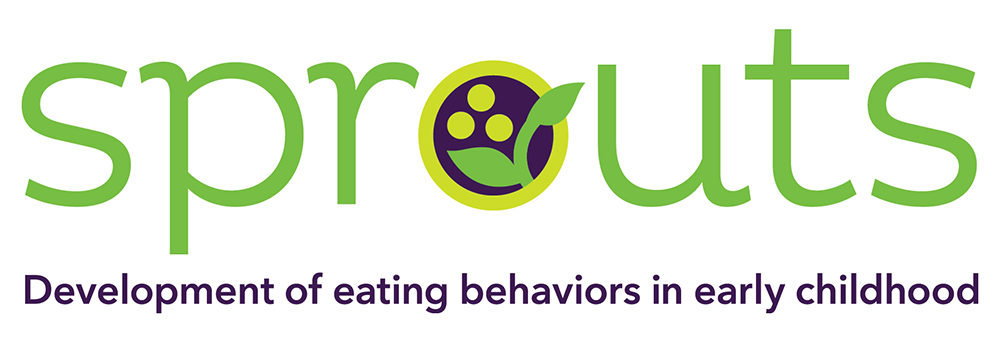Eating Behavior from Pregnancy through Early Childhood
- Tonja R. Nansel,
PhD, Senior Investigator, Social and Behavioral Sciences Branch, DiPHR - Leah M. Lipsky, PhD, Staff Scientist
- Amara Channell Doig, PhD, Postdoctoral Fellow
- Allison Choe, BA, Postbaccalaureate Fellow
- Allison Rojas, BS, Postbaccalaureate Fellow, Undergraduate Scholarship Program

The overarching goal of this research group is to advance our understanding of the determinants of healthful eating behaviors, thereby advancing the development of scalable behavioral nutrition interventions to improve diet quality and diet-related health outcomes. Our research is motivated by the urgent need to reduce morbidity and mortality resulting from preventable diet-related risk factors. Poor diet quality, characterized by excessive intake of discretionary foods (i.e., nutrient-poor foods high in energy, added sugar, fat, and sodium) and inadequate intake of fruits, vegetables, and whole grains, is the leading contributor to the global disease burden. Adherence to diet quality recommendations is low in every segment of the U.S. population, and public health approaches to improve diet quality have been minimally effective. The public health impact is considerable, especially during critical developmental periods. Our research program investigates behavioral and environmental influences on eating behaviors, from pregnancy through early childhood, to guide the development of future novel approaches to facilitate dietary change. Current projects include Pregnancy Eating Attributes Study (PEAS) and Sprouts: Development of Eating Behaviors in Early Childhood.
Pregnancy Eating Attributes Study (PEAS)
The Pregnancy Eating Attributes Study (PEAS) addresses the public health problem of poor maternal diet quality, excessive gestational weight gain, and postpartum weight retention, which are prevalent across racial/ethnic groups and income levels and are modifiable risk factors for numerous adverse maternal and child health outcomes. PEAS is an observational prospective cohort study investigating determinants of dietary intake and weight change during pregnancy and postpartum, as well as infant feeding behaviors. Participants were enrolled at less than 12 weeks gestation and followed, with their infants, until 1 year postpartum; data include dietary intake, anthropometrics, biospecimens, medical records, self-reported eating and other health-related behaviors, and infant feeding. Primary study findings, reported previously, were that greater propensity for reward-related (i.e., hedonic) eating was associated with worse diet quality during pregnancy, but not with gestational weight gain or postpartum weight retention. Lower availability of fruit and vegetables and greater availability of obesogenic foods in the home food environment were associated with worse diet quality, but the associations of reward-related eating with diet and weight did not vary depending on the home food environment or individual self-control.
Findings published in 2024 indicate that diet quality was stable across pregnancy and postpartum, with no sample-level differences across pregnancy trimesters. Diet quality was lower among participants with lower education, those receiving financial aid, and those who were not living with a partner; however, low diet quality was pervasive across all sociodemographic subgroups [Reference 1].
Overall diet quality was not associated with diversity of the gastrointestinal microbiome during pregnancy, possibly because of the general decrease in its alpha diversity observed during this developmental period. However, added sugar intake was associated with microbial function of copper ion homeostasis, which may contribute to oxidative stress, and greater saturated fat intake increased the likelihood of belonging to the taxa enterotype predominantly composed of Firmicutes [Reference 2].
We examined parent feeding behaviors in the first year postpartum, observing socioeconomic differences in feeding choices; lower education and family income were associated with later age of introduction to fruits and vegetables, lower intake frequency at age 12 months, greater intake frequency of discretionary foods, and greater odds of introducing fruit juice and sweetened beverages by age 12 months. However, feeding of discretionary foods in infancy was high across all socioeconomic groups. More unhealthy food in the home was associated with greater intake frequency of discretionary sweet and savory foods, lower intake frequency of fruit, and greater odds of fruit juice introduction by age 12 months. Findings suggest that efforts to reduce routine feeding of discretionary foods across socioeconomic groups are needed, and that modifying the home food environment may promote healthful infant feeding [Reference 3].
Sprouts: Development of Eating Behaviors in Early Childhood
Sprouts: Development of Eating Behaviors in Early Childhood, is a follow-up study of PEAS participants. With this well characterized cohort followed from early pregnancy through early primary school, we will investigate how prenatal and infant exposures, parent feeding practices, and behavioral factors influence the development of child eating behaviors, diet, and growth from ages three to seven years.
Sprouts addresses the public health problem of poor diet quality in children, which tracks into adulthood and has multiple adverse health consequences. Inadequate intake of whole plant foods and excessive intake of discretionary foods (i.e., energy-dense foods and beverages that contribute minimally to other nutritional requirements) begin in early childhood, which is a critical period for the development of food preferences and eating behaviors. These behaviors in turn influence child growth and adiposity, as well as long-term eating patterns, underscoring the need for research elucidating influences on early childhood diet quality. Dietary intake, anthropometrics, laboratory-assessed behavioral data, and parent-reported feeding/eating behaviors were collected from PEAS parents and children. Data collection began in 2019 and was completed late in 2024.
Findings to date elucidate influences of parent feeding behaviors, child characteristics, and environmental factors on child eating behaviors and diet quality. Parent feeding style was not directly associated with child diet quality but moderated the effect of child appetitive traits on diet quality. In families of parents with a more authoritarian feeding style, higher child food responsiveness and enjoyment of food were associated with better diet quality. Conversely, in families of parents with a more authoritative feeding style, greater child slowness in eating was associated with lower diet quality. Regardless of parent feeding style, greater child food fussiness was associated with lower diet quality [Reference 4]. Additionally, findings from an eye-tracking task indicate that more ultra-processed food in the home was associated with higher attentional bias to food images relative to color-matched non-food images, suggesting that home exposure to ultra-processed food may induce cue-reward reinforcement, which shapes the development of child eating behaviors and subsequent obesity risk [Reference 5].
Publications
- Diet quality from early pregnancy through one year postpartum: a prospective cohort study. Am J Clin Nutr 2024 120(5):1284–1293
- Dietary sugar and saturated fat consumption associated with changes in the gastrointestinal microbiome during pregnancy. J Nutr 2024 154(11):3246–3254
- Socioeconomic characteristics and the home food environment are associated with feeding healthful and discretionary foods in the first year of life. J Acad Nutr Diet 2025 125(2):228-238.e1.
- Associations of appetitive traits and parental feeding style with diet quality during early childhood. J Acad Nutr Diet 2024 124:864–873
- Ultraprocessed foods at home and children’s attentional bias toward those foods. JAMA Pediatr 2024 178:949–951
Collaborators
- Kyle S. Burger, PhD, University of North Carolina at Chapel Hill, Chapel Hill, NC
- Myles S. Faith, PhD, University at Buffalo, State University of New York, Buffalo, NY
- Aiyi Liu, PhD, Biostatistics & Bioinformatics Branch, DiPHR, NICHD, Bethesda, MD
- Grace E. Shearrer, PhD, University of Wyoming, Laramie, WY
- Anna Maria Siega-Riz, PhD, University of Massachusetts, Amherst, MA
Contact
For more information, email nanselt@mail.nih.gov or visit https://www.nichd.nih.gov/about/org/dir/dph/officebranch/sbsb/nansel.



